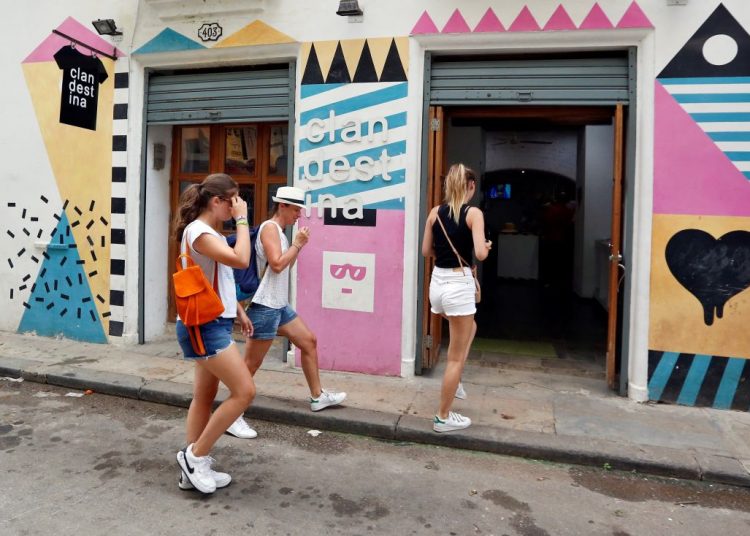“Actually, I’m in Havana” is a slogan that is immediately related to Clandestina, the first urban fashion line founded in Cuba in 2015, a private enterprise that has grown into a kind of millennial icon on the island. It turns out that Clandestina has denounced that Zara, the famous Spanish fashion house, sells a T-shirt using a very similar slogan: “Mentally I am in Havana.”
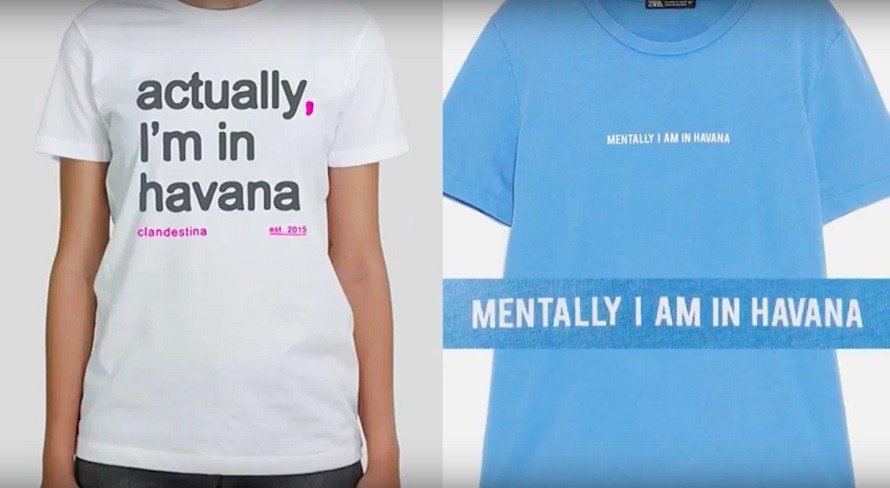
“The ‘Mentally…’ was already too evident, because our ‘Actually, I’m in Havana’ is what we have sold the most, it is something that connects Clandestina with the public a lot,” Leire Fernández, founder of the store with designer Idania del Río, says to OnCuba.
https://www.facebook.com/clandestina99/posts/2351632924884565
It isn’t the first time that a Zara collection uses resources that are too reminiscent of the Cuban store’s collections. Customers from different countries have sent videos or photos of T-shirts or stores where these “similarities” are obvious.
“The first thing was when our collection ‘País en Construcción’ [Country under Construction] was just coming out, Idania received a message showing her the ‘Under construction.’ Then we received the one of ‘Delete the drama,’ which was a bit strong,” says Leire about the similarity with another well-known piece of Clandestina’s that reads “Se acabó el drama.”
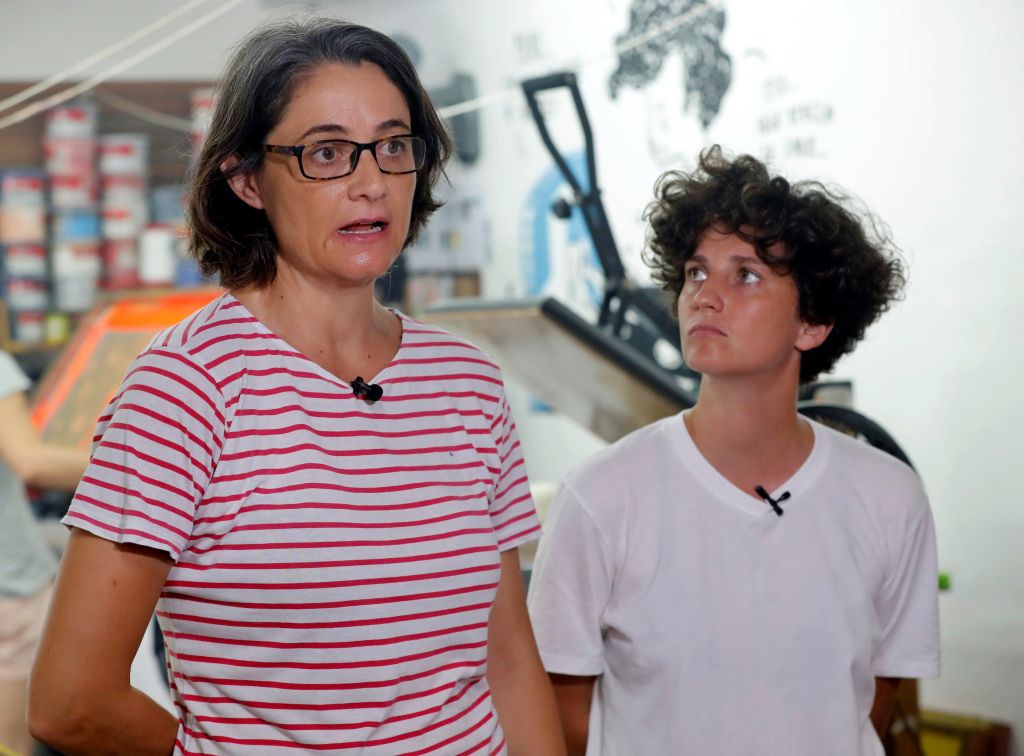
Clandestina’s staff has published a video on Facebook, with the sense of humor that characterizes it, where it denounces that “The Spanish brand Zara has launched some very familiar designs.”
“What a shame that such a large company has to do that, has to copy much smaller people in every way,” complains Idania del Río, who in 2016 spoke as an entrepreneur with then President Barack Obama during his visit to Cuba.
“Such a big and old brand shouldn’t have to copy another that is growing right now,” says a worker at the printing shop.
“Actually, that happens all the time: the big companies shamelessly steal the work from the smaller ones and, since they are better positioned, they sell it,” says Félix Manuel González, from the marketing team.
Zara, founded in 1975, today has about 2,250 stores worldwide. In July 2018, it was convicted by Italian justice for intellectual property violations with two garments it plagiarized. The sanction involved removing the affected products from stores, and paying a reparation of 235 euros for each of the garments of the plagiarized designs in circulation.
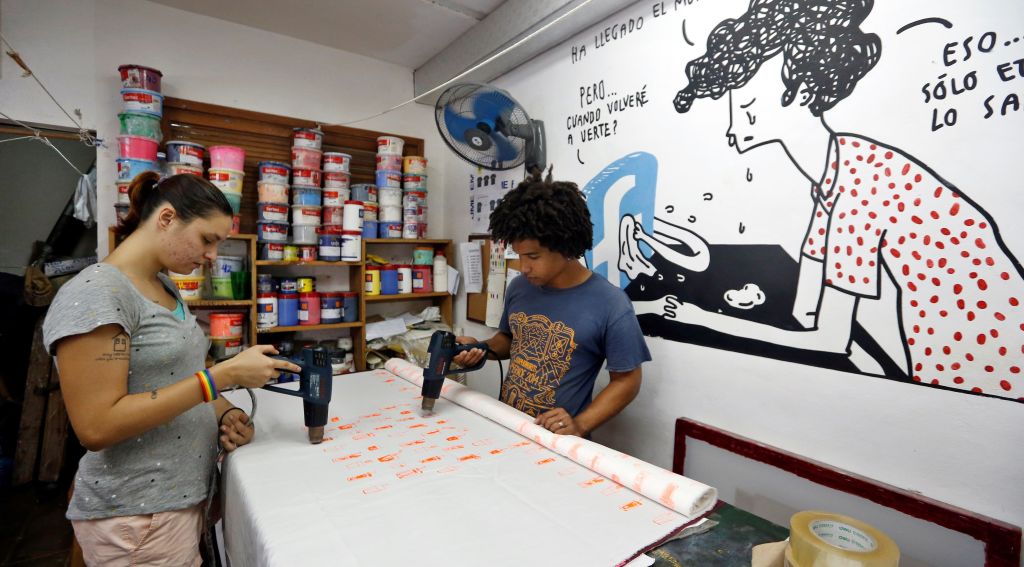
Inditex’s most famous brand has been involved in other judicial and controversial processes in different countries for the treatment of its workers, including working days that contemplated Sundays and holidays, gender discrimination and illegal workshops with slave labor and / or child labor conditions.
According to lawyer and copyright specialist Darsi Fernández, Cuban and European law establish that a design is protected by the very fact of its creation, without having been previously registered being a condition for its protection. “Registration is voluntary and not constitutive of law,” she explains to OnCuba. “In my opinion, it is easily demonstrable that it is plagiarism,” she says about this case.
Lidia Romero, from the legal department of Clandestina, says that taking action in this area, although “it is perfectly possible, for Clandestina it would be a cumbersome and expensive process.”
“We are small, we are on the island, it is very difficult,” insists Leire Fernández, “and in the end, as Clandestina has always used a sense of humor and positive thinking, the video was a bit to share with the community, because many people had written to us, and at the same time to denounce it.
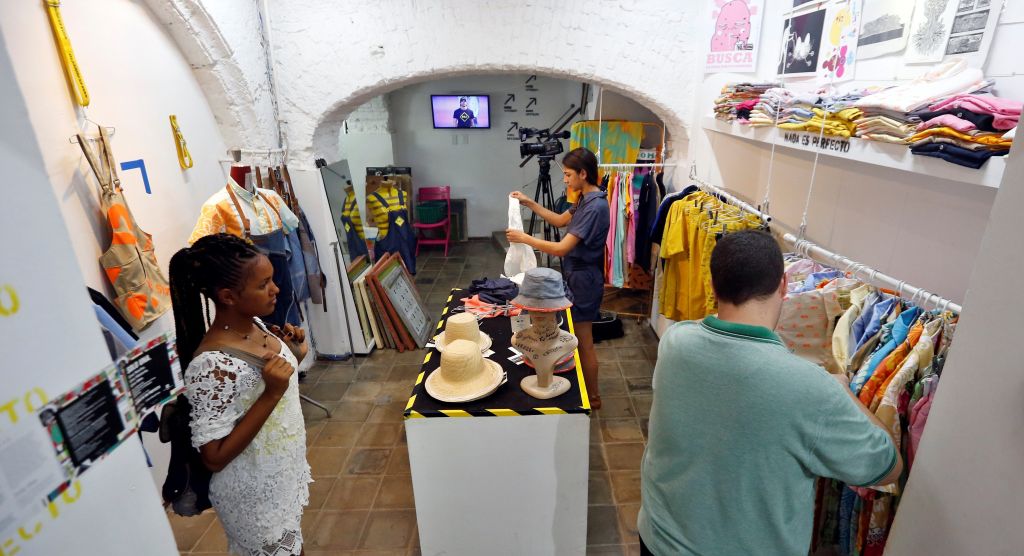
“I would love to consider the legal option, but we have consulted lawyers and they say it is a giant and that it is a very complicated thing. We do not have financial resources to take that on. What we are very focused on is the community and the online campaign, because we know that there are many more cases, and in this way we plan to draw attention through the networks and hopefully with the support of the media,” she adds.
As to what this means to its work if it happens, Leire explains that “on the one hand this is scary because you feel that, after investing a lot of time and work, you are exposed to someone coming along and copying you.… We also feel that we are more known, that we appear on sites. That is also good.”
“If they are copying us, it is because we are doing things well,” several of the staff members affirm, looking at the positive side in the face of how thorny a legal process can get in order to take the matter to another level.
“In any case we are getting advice, to protect ourselves and other designers working in Cuba in the future, and to be able to do something,” says Leire.
https://www.facebook.com/clandestina99/posts/2351589288222262
Clandestina presents itself as a Cuban fashion brand that “speaks to a global audience.” Since its founding in 2015, it has had a great impact as a representative of the emerging Cuban private sector, and thanks to its timing in the use of local codes and humor, taking advantage of ideas that arise from collective experience and imagination.
The brand has been operating internationally since 2017 and sells in its store in Havana, in foreign retail stores and online. In November 2018, it presented its “País en Construcción” collection at the National Museum of Fine Arts, in collaboration with Google Cuba. Last June it had an ephemeral store in New York and Washington.
“Zara, you have to stop”; they say when bidding farewell in the video using a street phrase that has spread thanks to a reggaeton.

